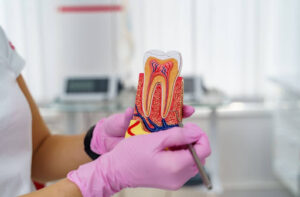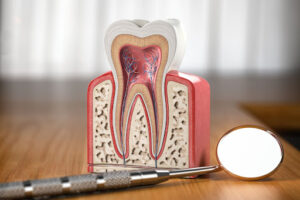Why Toothaches Catch You Off Guard
Toothaches often begin when you least expect them. A slight discomfort while eating or a sharp pain when sipping something cold can be easy to dismiss. Many people choose to wait it out, hoping it will go away on its own. But ignoring the signs often leads to more serious problems.
Getting help at the right time matters. A simple visit for general dentistry San Antonio services can prevent pain from getting worse and help identify the exact cause.
Let’s explore what usually triggers tooth pain, how to manage it, and the steps that can help you avoid it in the first place.
Common Causes of Toothaches
Tooth pain is usually a symptom of an underlying issue. The most frequent causes include:
- Tooth decay: Cavities form when plaque builds up and wears away enamel. If left untreated, they reach the inner layers.
- Gum issues: Swollen or bleeding gums may signal gingivitis or more advanced gum disease.
- Tooth injury: Accidents or biting on hard items can crack teeth, exposing sensitive nerves.
- Dental abscess: A deep infection can create intense throbbing and swelling in the gums or jaw.
- Worn fillings or dental work: Old fillings, crowns, or bridges can shift or loosen, leading to pain.
Some toothaches also result from sinus pressure or jaw tension, which makes professional diagnosis important.
How to Ease the Pain at Home
If dental care is not immediately available, certain home remedies can offer short-term relief.
- Cold compress: Apply to the cheek area for about 15 minutes to reduce swelling.
- Saltwater rinse: Gently swish warm salt water to clean the mouth and soothe irritation.
- Clove oil: A natural numbing solution that can be dabbed on the sore area.
- Over-the-counter medicine: Pain relievers like ibuprofen or acetaminophen can help manage discomfort.
Avoid chewing on the side that hurts, and stay away from very hot, cold, or sugary foods and drinks.
Treatment Options That Fix the Source
Home care is not a permanent solution. Visiting a dentist ensures that the root cause is properly addressed.
Depending on the condition, the dentist may recommend:
- Dental fillings: To repair decayed teeth.
- Crowns: To cover and protect cracked or weak teeth.
- Root canal: For deep infections where the nerve is affected.
- Deep cleaning: For gum infections and plaque buildup.
- Tooth removal: If the tooth is beyond saving or causing complications.
- Medication: Antibiotics may be prescribed in case of an abscess or swelling.
Delaying treatment can lead to greater pain and more costly procedures. Early action saves both time and teeth.
How to Keep Toothaches Away
Prevention starts with daily care. Simple habits reduce the chances of dental pain and keep your teeth strong.
Here’s what helps:
- Brush teeth twice a day with fluoride toothpaste
- Floss daily to remove plaque and food particles
- Use mouthwash if recommended
- Avoid sticky sweets and sugary drinks
- Stay hydrated to support saliva production
- Don’t chew ice or hard objects
- Visit a dentist every six months for a check-up
These steps may seem small, but they make a big difference over time.
What Consistent Care Really Means
Tooth pain affects more than just eating. It can change your mood, disrupt sleep, and make everyday conversations uncomfortable. People may not always notice the cause, but they notice the difference in how you talk or smile.
Good dental care brings more than relief—it restores confidence, peace of mind, and comfort in everyday life. Reliable clinics that offer both urgent care and ongoing support make it easier for patients to feel heard, treated, and cared for. In a dental world that often moves fast, staying consistent brings lasting results.






